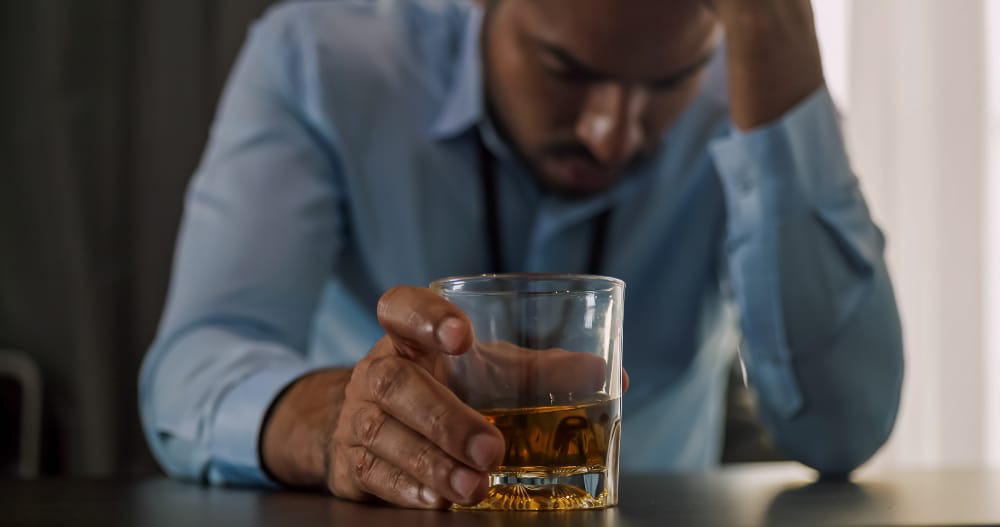Blackout drinking is a significant and alarming manifestation of alcohol abuse that goes beyond typical memory mishaps. This condition occurs when an individual drinks enough alcohol in a short time to disrupt the brain’s memory functions, leading to a complete inability to recall events, even though they remained fully conscious at the time. People often mistakenly think of blackouts as mere gaps in memory or hazy recollections, but the reality is much more severe and can have dangerous consequences.
What Does it Mean to Blackout?
Understanding what it means to experience blacking out is crucial for both individuals who consume alcohol and their friends and family. It’s not simply forgetting where you left your keys or failing to remember the name of a new acquaintance at a party. Blackout drinking typically involves larger stretches of time—hours or even an entire evening—where memories of events are entirely missing. During these episodes, individuals are able to interact with others and make decisions, albeit impaired ones, without any recollection afterward. This type of amnesia is directly linked to the amount and speed of alcohol consumption, affecting the brain’s ability to transfer information from short-term to long-term memory.
Physical Risks of Blackout Drinking
The physical risks associated with blackout drinking are both immediate and long-term, posing serious health threats that can affect virtually every system in the body. In the short term, blackouts can lead to life-threatening situations. The impairment of cognitive and physical functions increases the risk of accidents and injuries. Individuals may engage in risky behaviors, such as driving under the influence or engaging in unprotected sex, which they might not choose to do when sober. These behaviors significantly increase the likelihood of fatal accidents or contracting sexually transmitted diseases.
Blackout drinkers are also more susceptible to alcohol poisoning, a critical and potentially fatal condition. Because a person in a blackout may not be aware of how much they are consuming, they can easily drink far beyond a safe limit, leading to severe intoxication and overdose. Symptoms of alcohol poisoning include vomiting, unconsciousness, hypothermia, and slowed or irregular breathing, which require immediate medical attention.
Over the long haul, those who frequently experience blackouts may develop chronic health issues. Regular excessive alcohol consumption can lead to liver diseases, such as cirrhosis and hepatitis, as well as pancreatitis, cardiovascular diseases, and neurological damage. The risk of certain types of cancer also increases with the level of alcohol consumption. Moreover, alcohol has a cumulative effect on the brain—repeated blackouts can exacerbate cognitive decline and may contribute to the development of permanent memory problems and other serious mental health disorders.
Psychological Impact
The mental health ramifications of regular blackout episodes are profound. Individuals may experience increased anxiety, severe depression, and other mood disorders. The stress of not remembering actions or conversations can exacerbate feelings of helplessness and depression.
Frequent blackouts are a significant indicator of alcohol use disorder. They often reflect a pattern of drinking that prioritizes intoxication above all else, indicating a problematic relationship with alcohol that may require professional intervention.
Social and Legal Repercussions
The unpredictable behavior exhibited during blackouts can strain relationships, both personal and professional. Friends and family may distance themselves after witnessing or dealing with the consequences of blackout behaviors, leading to social isolation and a worsening of the drinker’s mental health.
Blackout drinking can lead to legal problems such as arrests for disorderly conduct, DUI charges, and other offenses. These incidents can have lasting impacts on a person’s life, including loss of employment opportunities, legal fees, and other financial and personal consequences.
Understanding the Warning Signs
Identifying the early signs of problematic drinking is crucial for preventing the escalation of alcohol misuse to dangerous levels, including the occurrence of blackouts. It’s essential to recognize these warning signals not only in oneself but also in friends and family members, as early intervention can significantly alter the course of alcohol abuse.
Recognizing Early Warning Signs of Problematic Drinking
The warning signs of problematic drinking can vary widely, but there are several common indicators that should raise concern:
- Frequent episodes of heavy drinking: Engaging regularly in excessive drinking sessions where large quantities of alcohol are consumed can be a precursor to developing more severe alcohol-related problems.
- Drinking in risky situations: Consuming alcohol in situations where it is clearly hazardous, such as before or while driving, operating machinery, taking care of children, or engaging in other risky behavior indicates a disregard for safety that often accompanies serious alcohol use disorders.
- Increasing tolerance to alcohol: Needing increasingly larger amounts of alcohol to feel its effects is a classic sign of developing dependence.
- Using alcohol to cope: If drinking is regularly used as a strategy to handle stress, anxiety, or depression, it may indicate that the person is becoming reliant on alcohol instead of healthier coping mechanisms.
- Memory impairment or frequent blackouts: Experiencing gaps in memory or episodes of blackouts after drinking are strong indicators that alcohol consumption has reached a dangerous level.
- Neglecting responsibilities: A noticeable decline in performance at work or school and neglecting household duties because of drinking or recovering from alcohol use are signs of problematic drinking.
- Changes in social groups: Shifting social circles to include only other individuals who drink heavily, or drinking alone more frequently, can also be a warning sign.
When to Seek Help
Understanding when these warning signs indicate a need for intervention is crucial. If you or someone you know is showing any of these symptoms, it’s essential to take them seriously and consider seeking professional help. Acknowledging the problem is the first step toward recovery. Here are a few scenarios that particularly call for professional intervention:
- Inability to control drinking: Finding it difficult to stop drinking once you start or repeatedly failing to cut back on alcohol consumption.
- Withdrawal symptoms: Experiencing physical symptoms like shaking, sweating, nausea, or anxiety when alcohol effects wear off.
- Continued drinking despite health problems: Persisting in drinking even when it’s causing or exacerbating health problems, particularly mental health issues like depression or anxiety.
- Social or relationship problems due to drinking: If alcohol use is causing or worsening problems in relationships with family and friends, or leading to social isolation.
How to Help Someone Experiencing a Blackout
Helping someone who is experiencing a blackout due to alcohol consumption is a critical and sensitive task. It requires immediate attention and appropriate actions to ensure the safety and well-being of the individual. Here’s how you can effectively assist someone during such an episode:
Immediate Steps to Take
- Ensure their safety: The first and foremost priority is to ensure the person’s safety. Remove them from potentially dangerous situations, such as being near busy roads, operating vehicles, or in places where they might fall or injure themselves. Ensure they are in a safe, quiet, and comfortable environment where they can rest.
- Stay with them: It’s crucial to stay with the person until they are sober. People in a blackout can behave unpredictably, and leaving them alone can lead to harmful situations. Your presence can help keep them grounded and prevent them from making dangerous decisions.
- Avoid confrontation: During a blackout, a person might not be rational, and confronting them about their behavior can lead to confusion and aggression. Keep interactions calm and non-confrontational. Avoid arguing or discussing their state, as they are not in a position to understand or remember the conversation.
- Keep them hydrated: Offering water can help prevent dehydration and assist in the process of sobering up. Avoid giving them more alcohol or any other substances, as these could worsen their condition.
- Monitor their symptoms: Watch for signs of alcohol poisoning, which include vomiting, seizures, severe confusion, slow or irregular breathing, and blue-tinged or pale skin. If any of these symptoms appear, call emergency services immediately.
Supporting Long-Term Recovery
- Encourage professional help: Once the person is sober and able to understand the situation, encourage them to seek professional help. Blackouts can be a sign of alcohol dependency, and professional counseling or a treatment program might be needed.
- Discuss the dangers and consequences: When the person is sober, have an open discussion about the dangers of blackout drinking. Help them understand the potential physical, psychological, and social consequences of their behavior.
- Support their journey to recovery: Be supportive of their decisions to seek help and make positive changes. Offer to help them find a treatment program, accompany them to meetings, or just be there to listen.
- Set boundaries: If their drinking behavior affects you, it’s important to set clear boundaries. Communicate your concerns and the limits of what you can tolerate in a straightforward and supportive manner.
- Educate yourself: Understanding alcohol abuse and the process of recovery can better equip you to help. Educate yourself about the triggers and challenges faced by those struggling with alcohol dependency.
Treatment and Recovery
The path to recovery from alcohol dependency, especially for those experiencing frequent blackouts, involves a comprehensive approach that addresses both the physical and psychological aspects of addiction. Here’s a detailed look at the treatment and recovery process:
Medical Detoxification
The first step in treating severe alcohol dependency often involves a medically supervised detox program. This process helps safely manage withdrawal symptoms that can be physically uncomfortable and potentially dangerous. Medical professionals monitor the patient’s vital signs, provide medication to ease withdrawal symptoms, and ensure the individual’s safety throughout the detox phase.
Residential Treatment Programs
After detox, many individuals benefit from entering a residential treatment center where they can receive 24-hour care. These programs are designed to help individuals understand the root causes of their addiction, develop new coping mechanisms, and begin the process of recovery in a supportive, structured environment. Residential treatment typically includes individual therapy, group sessions, and may also offer holistic therapies like yoga, meditation, and nutrition counseling.
Outpatient Treatment Programs
For those who cannot attend residential treatment due to personal or professional obligations, outpatient programs can offer a flexible alternative. These programs allow individuals to continue living at home and maintain their daily routines while attending treatment sessions multiple times a week.
Intensive Outpatient Programs (IOP)
These are more rigorous than standard outpatient programs, requiring participants to attend sessions for several hours per day, multiple days a week. IOPs focus on relapse prevention and are suitable for individuals who need a substantial level of support but have a stable living situation.
Begin Your Journey to Recovery at No Matter What
Understanding the risks associated with blackout drinking is crucial for anyone who consumes alcohol. By recognizing the signs, taking preventive measures, and seeking help when needed, individuals can significantly reduce their risk of experiencing blackouts and improve their overall health and well-being. It’s important to remember that blackout drinking is often a symptom of underlying issues that require attention—issues that can be addressed with the right support and resources.
If you or someone you know is struggling with alcohol dependency, remember that help is available. No Matter What Recovery offers comprehensive treatment programs tailored to meet individual needs. We provide the tools and support necessary for overcoming addiction, ensuring a sustainable recovery. Don’t wait to take the first step toward a healthier, sober life. Contact No Matter What Recovery today to learn more about how we can help you or your loved one.
FAQs
An alcohol blackout involves a lapse in memory due to alcohol’s effect on the brain’s ability to record new memories.
Blackouts are quite common, especially among binge drinkers and those who consume alcohol very rapidly.
Yes, frequent blackouts could indicate a serious problem with alcohol addiction or abuse and potentially other health conditions.
It’s essential to evaluate your drinking habits and consider seeking professional health advice.
Drinking alcohol in moderation, avoiding rapid consumption of high-proof alcohol, and understanding your limits can help prevent blackouts.

Dr. Eric Chaghouri is our Medical Director at No Matter What Recovery. Since completing his forensic psychiatry fellowship, he has established a successful and thriving practice in Southern California, focusing on treatment of co-occurring psychiatric and addictive disorders.

Dr. Eric Chaghouri is our Medical Director at No Matter What Recovery. Since completing his forensic psychiatry fellowship, he has established a successful and thriving practice in Southern California, focusing on treatment of co-occurring psychiatric and addictive disorders.







